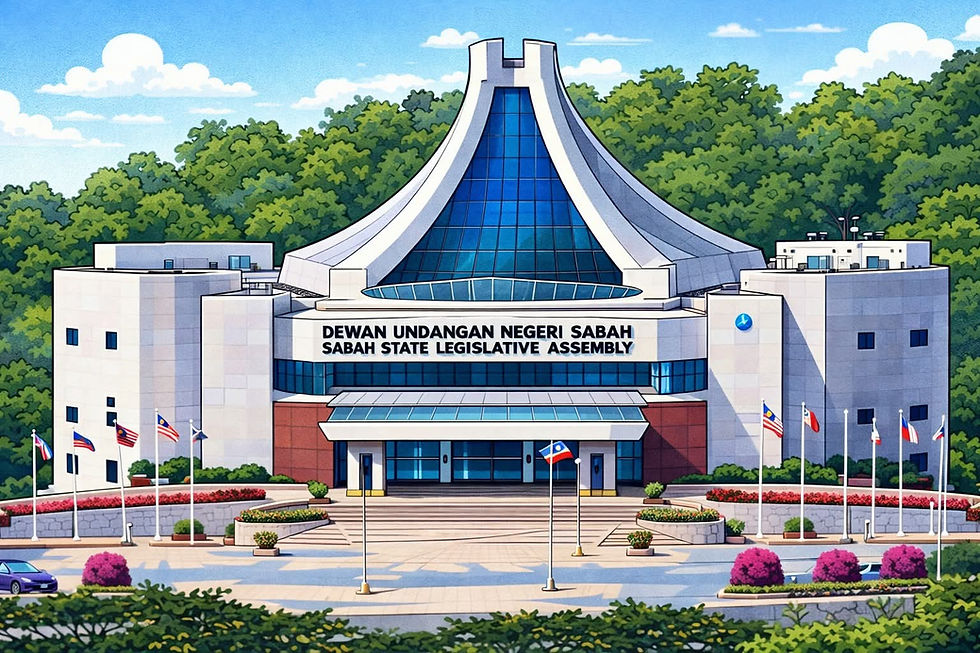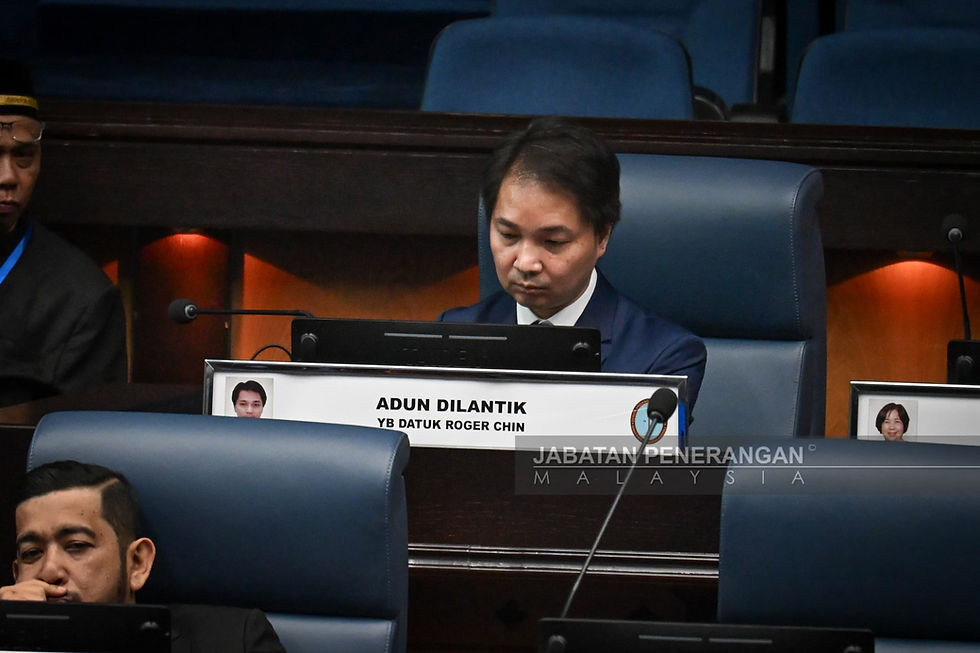No national integration without decentralisation
- nabalunews
- Sep 1, 2021
- 4 min read

31 Aug 2021
In the six years from 31 August 1957 to 31 August 1963, four British colonies across the South China Sea – Malaya, Singapore, Sabah and Sarawak – had in a staggered manner gained their independence to come together and form Malaysia on 16 September 1996. This makes 31 August an auspicious day, not just because it was the day Malaya and Sabah gained their respective independence, but also their independence preceded and enabled the formation of Malaysia.
However, neither the independence of Malaya nor the formation of Malaysia has produced national integration till today. We do not share a sufficient understanding of our common history – for example, how many non-Sabahans know today is also Sabah’s Independence Day? -- and many cannot even see a common future between the regions of Malaya, Sabah and Sarawak.
To strengthen a nationally integrated Malaysia, both psychologically and territorially, we must boldly recognise and address a key obstacle – over-centralisation in the Federation of Malaya that has been inherited by the Federation of Malaysia, hence disallowing states to endeavour, experiment and excel.
The Federation of Malaya was so centralised that state governments control primarily just Islam, local government, and natural resources on the land. Functions like Education, Health, Transportation, that are devolved to states or jointly controlled by the Federal and State governments in most federations and even unitary states like Indonesia, are centrally controlled in Malaysia. While Sabah and Sarawak were given extra competence in the State List and Concurrent List in the Ninth Schedule of the Federal Constitution, they do not change the picture fully.
The peril of over-centralisation is embodied in the economic under-development of Sabah and Sarawak despite the blessing of abundant natural resources. If a key benefit of centralization is equitable development, then Sabah and Sarawak have clearly missed the party. Many Sabahans and Sarawakians have asked many what-if questions about whether their home regions would have seen more development had they not been part of Malaysia.
It is sad and unhealthy for Malaysia but who can blame them for feeling their regions have merely been transferred from London to Kuala Lumpur instead of gaining independence? If we do nothing to change the status quo, more will ask such questions and come to even bitterer answers when Indonesia’s new capital city is completed in East Kalimantan by 2025.
However, it would be wrong to think that Sabah and Sarawak are the only victims of over-centralisation and treat the 11 Malayan states as a single bloc that is out to dominate the Borneo regions. If Sabah and Sarawak can feel the pain of having our wings crippled, of being denied opportunities to flourish with our great potentials, Malayan states with even less power surely feel more confined.
The raging pandemic has shown how over-centralisation can be deadly. In Sabah, only four in 10 adults are vaccinated. Many Sabahans, especially those in inland communities, are simply left out for one reason or another. Weeks ago in the affluent Selangor, overflow of Covid-19 patients caused some patients to sit on the floor and mortuaries to be filled up. Why can’t states be given greater roles in healthcare (currently an exclusively Federal matter in Ninth Schedule) to ramp up vaccination or building modular hospitals?
We cannot celebrate our respective region’s independence as the prelude to our federation’s birth without reflecting on its defects. We must work hard to end this over-centralisation before the next August 31.
For this to happen, I call on fellow Sabahans and Sarawakians to develop a more sophisticated perspective on Malayan states. While Sabah and Sarawak must be treated as a region on par with the whole of Malaya as equal partners, with more power than each of the 11 Malayan states, we must insist on having the 11 Malayan states on the negotiation table on the Malaysia Agreement 1963 (MA63).
Sabah’s and Sarawak’s best interest is served, neither by keeping the 11 Malayan states disempowered so that we can remain a class above nor by apathy to them when increasingly more Sabahans and Sarawakians are living in Malaya.
Sabah’s and Sarawak’s best interest is served by wanting them to be empowered so that we would get even more than they do, by seeing them as 11 potential allies rather than 11 blind followers of Putrajaya, by ending the folly of excluding the Malayan states with five-sixth of the national electorate on discussions of MA63 and Federalism.
I call upon Datuk Seri Ismail Sabri to convene an Inter-Governmental Committee 2.0 (IGC2) with the representatives of the Federal Government and all 13 state governments to produce a MA63+ package that will not only honestly implement and realise the promises of MA63 but also pursue more measures like sharing of income tax revenue which is not at all covered by MA63.
To fight the pandemic now, I repeat my call for a Federal-State Council (FSC) on Economic Recovery and Health that combines the current functions of the National Security Council (NSC) overseeing pandemic SOPs and the National Recovery Council (NRC) overseeing economic measures. While all CMs/MBs attend the NSC meetings, only the CMs of Sabah and Sarawak are so far invited to join NRC. To have two councils separately make interrelated decisions is unnecessarily duplicating the structure.
I urge the PM to seriously consider setting up the FSC, a tripartite decision-making body chaired by the PM, with the Parliamentary Opposition Leader as the deputy chair, CMs of Sabah and Sarawak as vice-chairs, consisting of key ministers, senior opposition MPs and all 13 CMs/MBs. This is the shared rule that will not only assist the new Government to govern better, but also strengthen Malaysia. I have filed a motion for the FSC in the upcoming September parliamentary session and I hope the Dewan Rakyat speaker will allow the motion to be debated.
Finally, I welcome the de facto law minister Datuk Seri Wan Junaidi Tuanku Jaafar’s stated commitment for parliamentary reform and MA63 and hope that he will increase the number of Parliamentary Special Select Committees (PSSCs), beginning with a PSSC on Federalism and Decentralisation to shadow the PM Department’s portfolio on Sabah and Sarawak affairs.
I call upon all Malaysians to pursue decentralisation, not only to allow all States and Federal Territories to flourish on their potentials, but also to improve national integration by reducing discontent due to over-centralisation and regional imbalance.
If we can undertake some bold steps in the next 12 months, that would be our present to our beloved Federation for the next Merdeka Day.
DATUK SERI PANGLIMA WILFRED MADIUS TANGAU
Tuaran Member of Paliament
President of the United Progressive Kinabalu Organisation (UPKO)


















Comments